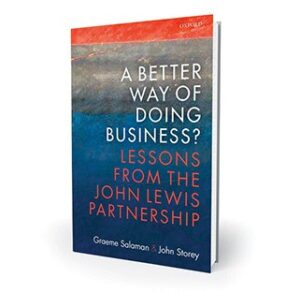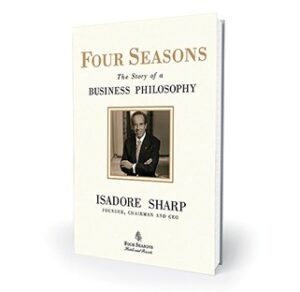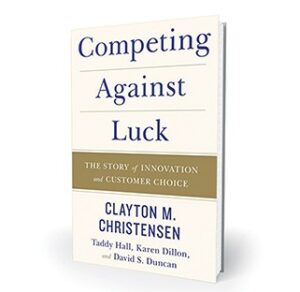Browser History: Customer Experience Book Spotlights
 A Better Way of Doing Business?: Lessons From the John Lewis Partnership by Graeme Salaman and John Storey. Oxford University Press, 2016.
A Better Way of Doing Business?: Lessons From the John Lewis Partnership by Graeme Salaman and John Storey. Oxford University Press, 2016.
The authors of this book believe the corporation—particularly in the United States and the United Kingdom—is in trouble for one primary reason: the single-minded pursuit of shareholder value. They hold up the John Lewis Partnership, which owns the U.K.-based John Lewis department stores and Waitrose supermarkets, as onto something better. Both retailers continually receive top marks for customer experience. A Better Way of Doing Business? offers the first thorough analysis of the Partnership’s unique employee-owned governance structure. The question mark could have been deleted from the title.
 Four Seasons: The Story of a Business Philosophy by Isadore Sharp. Portfolio, 2012.
Four Seasons: The Story of a Business Philosophy by Isadore Sharp. Portfolio, 2012.
Four Seasons founder and chairman Isadore “Issy” Sharp is renowned for his dedication to the Golden Rule—treat others as you wish to be treated—but this book goes much further than that, sharing tales of Mr. Sharp’s upbringing as an immigrant as well as his trials and tribulations in the hospitality industry. Anyone interested in business and strategy will enjoy the (perhaps almost too thorough) details of Mr. Sharp’s strategic decisions that built the world’s most admired hotel brand. For those who prefer the more personal side of leadership, the memoir’s rags-to-riches storyline will not disappoint.

Competing Against Luck: The Story of Innovation and Customer Choice by Clayton M. Christensen, Taddy Hall, Karen Dillon and David S. Duncan. HarperBusiness, 2016.
Clayton Christensen is back with customer experience insights no executive should miss. Share on X Competing Against Luck, written by the Harvard Business School professor and three co-authors, takes a deep dive into the “Jobs to Be Done” approach Mr. Christensen first introduced in a 2007 MIT Sloan Management Review article. Consumers do not buy products, the theory posits, but “hire” products to do a job. To drive innovation and loyalty, a company’s leaders must understand what causes customers to “hire” their product or service. Understanding the jobs to be done is a guaranteed path to growth, the book says; innovation no longer needs to be a game of chance. This is an invaluable guide to successfully using the approach in the real world.



